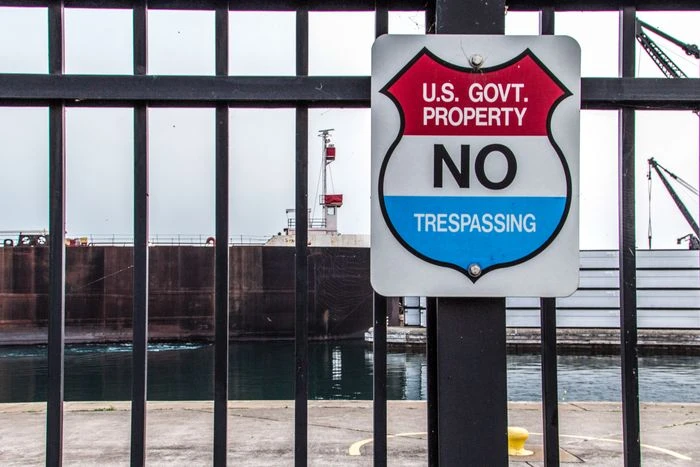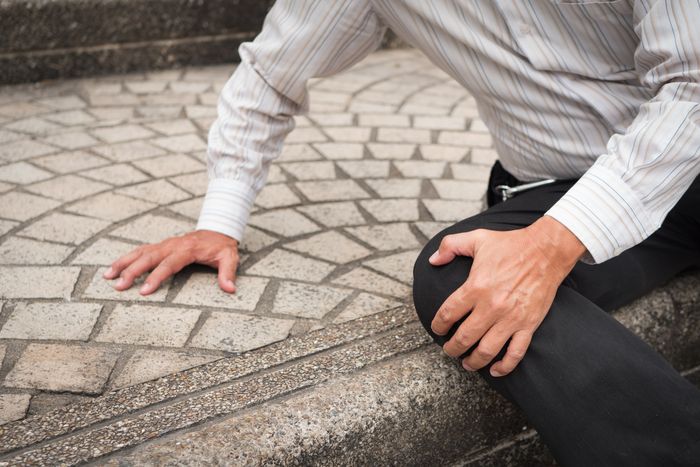
Slip and fall accidents can occur anywhere at any time. However, if you slip and fall on government or public property, your case is more difficult to argue than a claim against a private property owner. This is because, while many of the same legal requirements for proving your case remain, special protections or sovereign immunity granted to the government may thwart your claim. However, it’s still possible to win your slip and fall case against a government entity, but working with an experienced personal injury attorney may be your best bet in securing the compensation you need.
What Defines Government Property in Slip and Fall Cases?
Government or public properties in slip and fall cases can include any locations owned or maintained by the government, as opposed to privately owned by an individual or company. This includes, but isn’t limited to:
- Government buildings and grounds
- Public sidewalks, elevators, stairwells, ramps, and handrails
- Public pools, parks, libraries, and parking lots
- Pedestrian crosswalks or paths

How Location Affects Claim Treatment
Another complexity introduced by public property slip and fall claims is that of varying processes, requirements, and deadlines. Specific county government properties, state-owned public properties, and federally owned and maintained properties may all impose various rules around slip and fall cases.
There may be different forms, processes for filing claims, and deadlines associated at each level, so it’s important you are clear on which entity was involved in your accident and what those processes and requirements look like for your case.
Filing a Slip and Fall Claim Against a Government Entity
Like slip and fall incidents on privately owned property, filing this type of personal injury claim against a government entity requires you to meet certain conditions. These conditions require you to show:
- A government agency owns or controls the property on which your accident occurred
- A tripping, slipping, or otherwise unsafe condition on the government-controlled property led to your accident
- The government entity was negligent in its duty of keeping the premises clear of this hazard and either:
- Knew the hazard existed and failed to address it in a timely manner
- Should have known the hazard existed as a result of routine maintenance checks
- The government agency’s negligence in addressing this hazard directly led to your accident and resulting injuries
The above represents a general guide for the conditions that your claim must satisfy in order to argue a slip and fall case against a government entity. Additionally, you must be thorough in the claims process by documenting the hazardous area at the time of the incident, as well as your immediate injuries and all subsequent medical treatments you receive as a result of your injuries. As with privately owned property involved in slip and fall cases, this documentation can go a long way in establishing your claim.
The process of filing your claim, however, takes on different requirements than the typical slip and fall case made against a private property owner. In addition to the strict and varying deadlines different government agencies impose, the most important point is that you must provide a specific kind of notice to the government agency involved. It’s imperative you send this notice to the correct office in a timely manner. It is also critical that you follow the instructions on this notice and fill it out completely. Failing to take these steps may result in you forfeiting your right to bring a claim against the government for slip and fall damages.
It’s also important to work closely with a personal injury attorney in slip and fall cases brought against government entities in order to handle sovereign immunity defenses. Under English Common Law, the historical basis and framework for U.S. laws, the government was completely immune from any suits based on negligence due to some quirks of history under King Henry VIII, which was called “sovereign immunity.” As the United States began to form its own laws, parts of the absolute bar imposed by sovereign immunity were overruled by Statutes. However, these Statutes dictate certain areas where the immunity was waived and erected certain defenses that are unavailable to private landowners. There are also certain notice requirements that must be strictly adhered to or a claim may be barred by a technicality. Also, the waiver puts caps on recoverable damages under almost all circumstances.

Florida Statute of Limitations for Slip and Fall Claims
The Florida statute of limitations for slip and fall claims is two years from the time of the incident. However, federal, state, and municipal government agencies can all have shorter deadlines for filing your claim, and missing these deadlines can mean forfeiting your right to pursue compensation for your injuries. Some agencies may require notice of your claim in as little as 30 days from the time of the accident, so it’s imperative you determine the entity responsible for your accident and its processes as soon as possible.

Do Government Entities Have Immunity From Slip and Fall Claims?
Part of what makes government slip and fall cases begins with the understanding of sovereign immunity, mentioned above. No claims alleging negligence could be brought against the government at all; whether slip and fall or otherwise. This absolute immunity was overruled in part by Statutes, but there are some areas where the government is completely immune from a suit.
In Florida, this body of law is controlled by Florida Statute sec. 768.28, as interpreted by the case law. If this sounds complex, it gets even more complicated the deeper you go. The Statute controls formal notice requirements (which you must strictly comply with and can effectively shorten the statute of limitations) and establishes certain defenses that don’t apply to private landowners, placing caps on the amount of money you can collect as an injured person. You can’t sue the individual government employees involved, only the political subdivision that was in control of the property. An additional challenge is that your jury pool will typically be taxpayers who reside within the community you’re suing.
For federally owned or controlled properties, the rules are entirely different from Florida law. This body of law is governed by the Federal Tort Claims Act of 1948 and interpreting case law. The formal notice requirements and defenses are totally different from Florida as well as the caps on recoverable damages. Additionally, any cases against a federally owned or controlled entity need to be brought in federal court, not state court. Whenever you have a slip and fall on any governmentally owned property, whether state or federal, it is critical to get an attorney intimately familiar with the twists and turns of sovereign immunity on your side as soon as possible.
Involved in a Slip and Fall Accident on Government Property? Contact GED Lawyers to Discuss Your Options
Slip and fall accidents that occur on government or publicly owned property are complicated. This is because government entities typically have specific processes and timelines for filing a claim, as well as caps on damages available to award victims, and these can differ depending on the level of government involved. For this reason, it’s important to have an experienced personal injury attorney on your side if you have been involved in this kind of accident. To learn more or to discuss the details of your case, schedule your free consultation with GED Lawyers today. You may also call us at 844-443-3529 or 561-995-1966.

